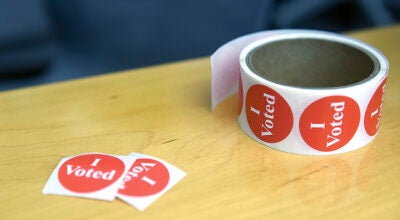There are phonies out there
Published 6:10 am Monday, March 8, 2010
When novelist J.D. Salinger died in January, his death appropriately received not only wide news coverage but enthusiastic assessment by columnists. Opinion pieces agreed he had captured accurately and expressed convincingly the spirit of adolescent culture of the day in which his novel “The Catcher in the Rye” was published (1951). While I certainly agree, I don’t think many have yet caught the full implications of Salinger’s story.
Catcher accurately describes the feeling of adolescents that adults were fake or, in Holden Caulfield’s word, “phony.” Salinger had his fictional character convincingly rehearse the lack of genuineness and surfeit of hypocrisy that alienated a whole generation of youth. All this is true, to a point and in a degree, but it isn’t the whole or final story.
I read the book shortly after its release and immediately recognized the social phenomena and economic conditions about which Caulfield complained, because I had felt such complaints and they had outraged me as well. Two years earlier, when a sophomore, I would have agreed with the perspective almost without reservation. But by the time I read the book, I was 21 and had just completed college, having majored in philosophy, and was out in the real world.
I think I had grown up in those two years, and I had gained new perspective. I was by then becoming an adult. I recognized the complaint about adult phonies, to be sure, and concluded the charge was generally valid. There really are phonies out there. However, a more mature recognition developed. The biggest phony of all was none other than Holden Caulfield himself. I don’t know because Salinger never talked about it, but I suspect the novelist intended to make his character this transparent.
Too many readers — and especially those who didn’t actually read the book but jumped on the presumed message reported — haven’t thought the story through to its logical conclusion. One college freshman told me, his literature instructor, that he didn’t need the book because he fully understands it from what he had heard and his own lifetime (lifetime?) of experiences. Reading some of the recent commentaries on the book, I recognize many people still don’t get it.
The reason I could recognize Caulfield as a phony is I was even then just beginning to outgrow the same adolescent phoniness.
Caulfield, and I, were phonies precisely because we thought we had all the answers. We could tell who was phony, and it was just about everyone but us. After all, we had lived eighteen or twenty years and had seen enough of the world to know the entire world.
We didn’t understand an adult could be logically inconsistent without being morally hypocritical. We didn’t understand a person who wasn’t living up to his ideals still cherished ideals or that we weren’t yet ourselves living our own ideals.
We didn’t understand being adequate is acceptable when perfection is impossible. We didn’t understand a person who has failed isn’t necessarily a failure. A person trying to become more than he is isn’t pretending to be such.
Good intentions do count for something, and a good try is sometimes the best one can do. It’s easier to boast in the future tense than confess in the past perfect.
A kid can confidently promise and suffer only the skepticism of adults.
But adults are burdened with accountability for incomplete results. We mocked the generation or two ahead of us for not having accomplished what hundreds of yet earlier generations had not, only to become such a generation ourselves and suffer the same complaint of those behind us.
We were cock sure we knew how to run the world if they would only give us the chance. Then the world became ours to do with as we might, but it is worse off now that we’ve had our chance.
While I was reading Catcher, I was working with younger adolescents like Caulfield and I recognized Caulfield in them and them in Caulfield. I still felt there was a lot of phoniness among adults and I now suppose there always will be.
But I was beginning to smell a phony closer to home.
The message of Catcher is not the phoniness of grown-ups, but the need for youth to grow up.





